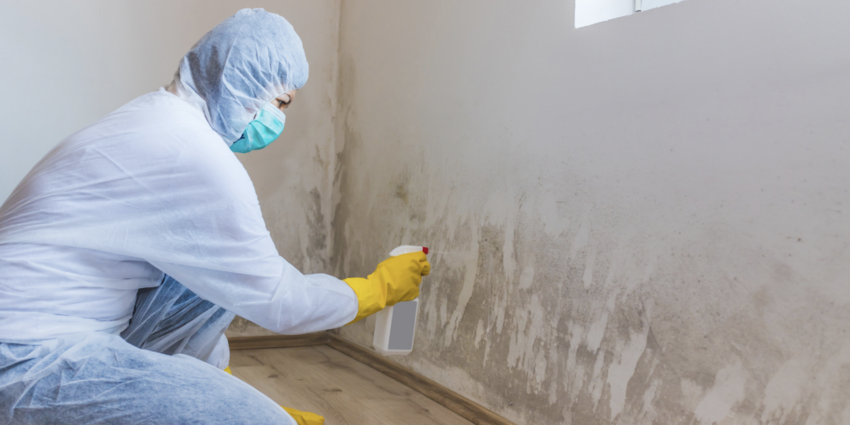Mold inspection costs in Maryland can range from $300 to $700 depending on your location, the size of your home, and the extent of testing needed. The average ranges around $650 for a typical single family home inspection.
In this article, we go over the ins and outs of the cost of mold inspection in Maryland.
Average Pricing for Mold Inspections in Maryland
Mold inspection services rarely charge a simple flat rate, as many factors impact the total pricing. However, we can break down average pricing estimates for different home types and locations:
- For a single family home (2,000-3,000 sq ft) expect to pay $400-$600 for a basic mold inspection.
- In the Baltimore metro area, costs for a basic inspection often range from $450 to $700. Higher population means higher demand.
- In more rural parts of Maryland, costs could start as low as $300 for a basic visual inspection and sampling of a typical home.
- For larger homes over 3,500 square feet, inspections typically cost $600-$800 depending on the size and number of rooms checked.
- In commercial spaces like offices, retail stores, or warehouses, inspections average $0.05-$0.10 per square foot. A 10,000 square foot space could cost $500 to $1,000 or more for a proper mold check.
Elements of a Professional Mold Inspection
A thorough mold inspection will check for visible mold, take air and surface samples, determine moisture levels, and identify any conditions that could be causing mold growth. Here are the key components:
Visual Inspection
The inspector will tour your entire property looking for visible signs of mold like discoloration, fuzziness, or mushroom-like growths. They inspect in and behind walls, under sinks, in basements and crawl spaces, attics, and anywhere moisture could accumulate. The goal is to identify areas to target for sampling.
Air Sampling
Your inspector will use specialized equipment to take air samples throughout your home. Air is pumped through a cassette that traps mold spores and particles. The sample is then sent to a mycology lab for analysis under a microscope to identify mold present in the indoor air. Multiple samples are taken from different rooms.
Surface Sampling
In areas where visible mold appears present, the inspector will take surface samples. This involves lightly rubbing a sterile swab on the affected surface to collect a sample. Surface samples detect whether mold is actively growing.
Moisture Readings
Part of the inspection is looking for dampness or moisture intrusion issues. Inspectors use moisture meters to take readings on building materials like drywall and in humidity-prone areas. High moisture levels signal risks for mold.
Once the inspection is complete, you’ll receive a detailed report. The best inspectors provide more than just sample results – they give guidance on any issues found, advice on fixing moisture problems, and instructions if remediation is required.
When Are Mold Inspections Recommended?
Mold inspections are a smart investment if you see visible mold or suspect excess moisture that could cause growth. It’s important to identify and address mold issues before they escalate into a major problem.
Here are common situations that call for booking a mold inspection:
- After water damage from flooding, storms, plumbing leaks, roof leaks, etc. Fast inspection helps dry out the area properly.
- Before buying a new home, especially if there are damp basements or signs the seller is hiding moisture issues.
- During a home remodel where you open up walls and find questionable dark areas.
- If you notice a musty odor in certain rooms or areas of the home.
- When selling a home, an inspection offers peace of mind there are no hidden mold issues.
- Annually in humid climates or seasonal homes prone to moisture buildup when not occupied.
Look out for condensation on windows, bubbling paint or wallpaper, wood rot, and warped floors as possible signs of excess moisture. Acting quickly keeps mold from taking hold and saves on expensive remediation later.
How to Choose the Best Mold Inspector
Not all home inspectors offer mold-specific inspections. When hiring a mold inspector, here are the top credentials to look for:
- Training with organizations like the American Council for Accredited Certification (ACAC) or Indoor Air Quality Association (IAQA).
- Certifications like Applied Microbial Remediation Technician (AMRT) or Indoor Environmental Consultant (IEC).
- Background in structural drying, water/fire restoration, and indoor air quality.
- Affiliation with respected inspector associations.
- Use advanced methods like thermal imaging, 3D scanners, heavy metals testing, etc.
- Also look for great client reviews and experience specifically handling residential mold inspections. Avoid inspectors who seem to rush the process or come in with a predetermined remediation plan before assessing your situation.
FAQs About Mold Inspections in Maryland
When Will I Get The Mold Inspection Results?
A full lab analysis of the air and surface samples takes 3 to 5 days typically. Some inspectors offer faster 24-48 hour rush processing for an extra fee.
What If My Rental Property Manager Won’t Allow A Mold Inspection?
In Maryland, renters have a legal right to request a mold assessment if they reasonably suspect mold exists. The property manager cannot unreasonably deny an inspection.
Will The Inspection Tell Me If The Mold Is a Toxic Black Mold?
Lab results will identify the exact mold species present. Toxic black mold (Stachybotrys chartarum) has a distinct appearance under the microscope. Leave health concerns to the professionals.
Get Started Today
Ready to ensure the safety and health of your home or business in Maryland? Get a comprehensive mold inspection today! Click here to request a quote and discover the affordable mold inspection cost in Maryland. Protect your property and loved ones from the dangers of mold – act now!



